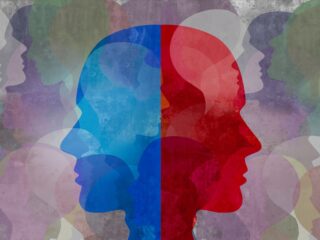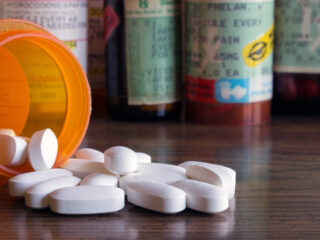In recovery, you will often hear the phrase ‘grateful addict.’ What the heck are they talking about? How can you be grateful when drugs cost you your marriage or when alcohol cost you your driver’s license? Being a grateful addict sounds complicated but the importance of gratitude in recovery cannot be understated. Let’s figure out what it means to be a grateful addict, how you can pull gratitude from the worst parts of your life, going into inpatient treatment and how to practice gratitude daily.
The Importance of Gratitude
Being a grateful addict means appreciating the gifts you receive every day no matter how small and using your addiction as a springboard to a better life than ever before. Let’s imagine you’re in a terrible car crash but everyone survives with no permanent injuries – wouldn’t you be grateful to be alive and learn to better appreciate the world around you? Addiction may not be as dramatic as a car accident, but it can have the same results. You don’t look back at the accident with fond memories, but you can use it as a tool to get more out of life.
It’s the same with being a grateful addict. You don’t want to shut the door on your worst years, but you absolutely should use it as a starting point to get more out of life than you ever could before. An addict who expresses genuine gratitude knows where they’ve been, how bad it was, and how much better life can be having gone through it.
Shifting Attitudes
Did you know you can trick your brain into rewiring itself by being a grateful addict? You can call it ‘fake it until you make it’ but there’s real evidence that even pretending to be grateful or trying to appreciate the little things in life can change the way you think for the better. You may have to slog your way through gratitude during early recovery but eventually, something wonderful happens – you’re not pretending anymore. When you say thank you to someone, you’ll realize you actually cherish what they’ve done for you, or genuinely enjoy love and support given by friends and family. Once you reach the point of genuine gratitude, you’ll find life and recovery are much easier than before.
How to Practice Being a Grateful Addict
The trick in being a grateful addict is by practicing gratitude. This includes personal tasks and maintenance like making a daily list of things you are grateful for or stopping yourself to appreciate the color of a sunset – but it also includes how you lead your life. Gratitude is an action word. You can be grateful for many things in your head, but it requires work to come to fruition.
This means saying thank you, you’re welcome, and illustrating your gratitude in verbal or physical form. When you have a good, long talk with someone don’t just say thank you, tell them why you appreciate their time and the positive effects it’s had on you. Expressing gratitude through actions and words helps you become a more grateful addict. There are many things you can do daily to get in a grateful state of mind like:
- Keep a gratitude journal
- Make daily lists of 5 unique things you’re thankful for
- Call someone who’s been there for you and give your thanks
- Perform at least one act of kindness daily
- Cook a nutritious mean you love
- Reward effort, to both yourself and others
- Say please and thank you
- Smile more often, especially to yourself
- Focus on your strengths
- Share your gratitude with others
There are many other things to help you practice gratitude, talk to a friend, or go online to see how others live a grateful life.
Learning about PAWs
Most acute detox symptoms disappear within a few days or weeks of abstaining from your drug of choice but that doesn’t mean you’re out of the woods. After acute detox most patients must still deal with Post-Acute Withdrawal Syndrome (PAWS) and the symptoms that accompany it. When you abuse drugs or alcohol you change how your brain picks up and releases different signals, leaving you with a mess of a mind. Unfortunately, these signals don’t go right back to normal after you quit drinking or using drugs – it can take weeks or months to get everything in order. While your brain repairs itself, you’re likely to suffer PAWS symptoms like anxiety, depression, sleeplessness, mood swings, and more.
How do you combat PAWS? Through fellowship, nutrition, exercise, and practicing gratitude. As we learned above, taking time to focus on the positive aspects of your life and the gifts you’ve been given can change your thought patterns and how your approach bad news. Being a grateful addict helps reconnect your emotions and can drastically diminish symptoms of PAWS.
The Important of Mindfulness
Mindfulness and gratitude go hand-in-hand. Mindfulness teaches you to slow down and focus on the world around you that you might have missed before. You will learn to appreciate the taste of fresh fruit, or the sounds of your next neighbor’s kids laughing, or even the gentle push of a breeze around you. When we slow down and focus on the different aspects of our life and environment, we learn to be more appreciative and grateful of all things both big and small. Daily reflection, meditation, and practicing mindfulness are fantastic ways to become more grateful of your sobriety.
Stay Grateful
Getting sober is much more than abstaining from drugs or alcohol, it’s about changing your thought patterns and learning to appreciate where you were and how far you’ve come. To get the most out of sobriety and life – you must be a grateful addict. Grateful addicts who practice mindfulness, give genuine thank yous and learn to appreciate the beauty of the world will lead happy, joyous, and free lives.







